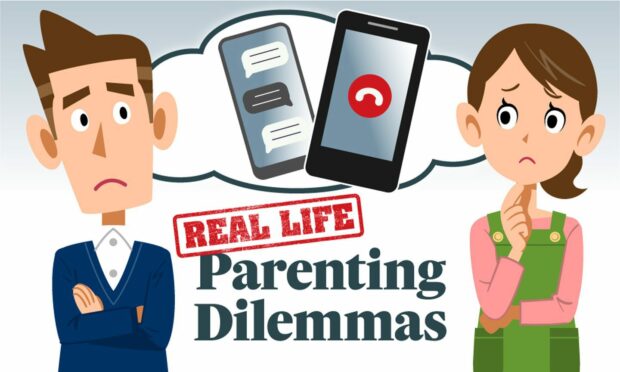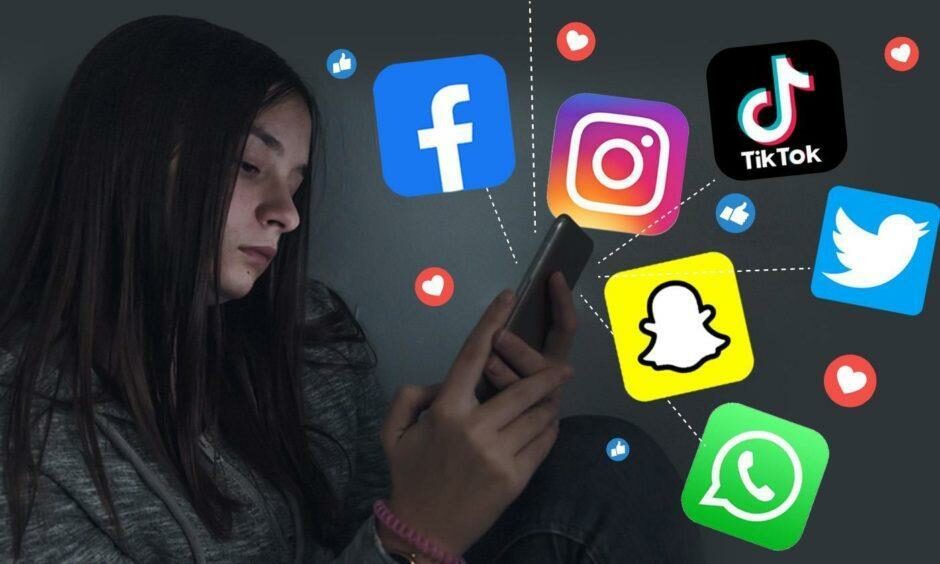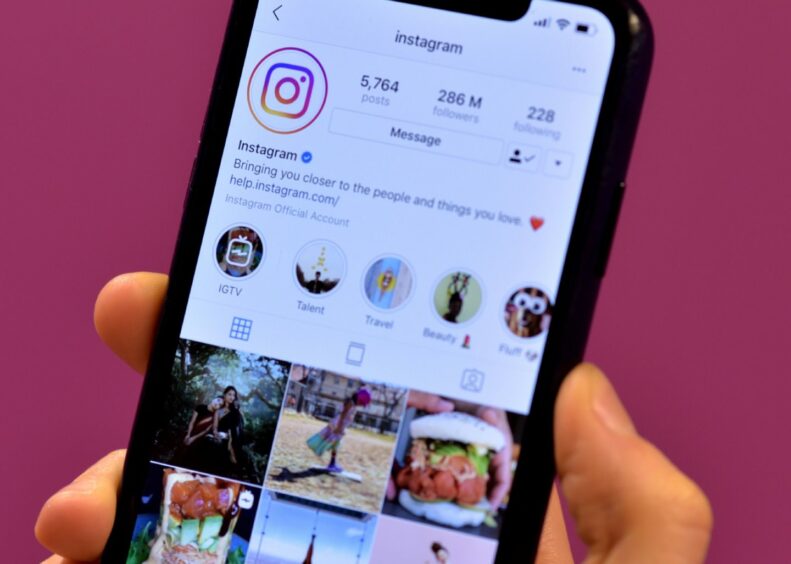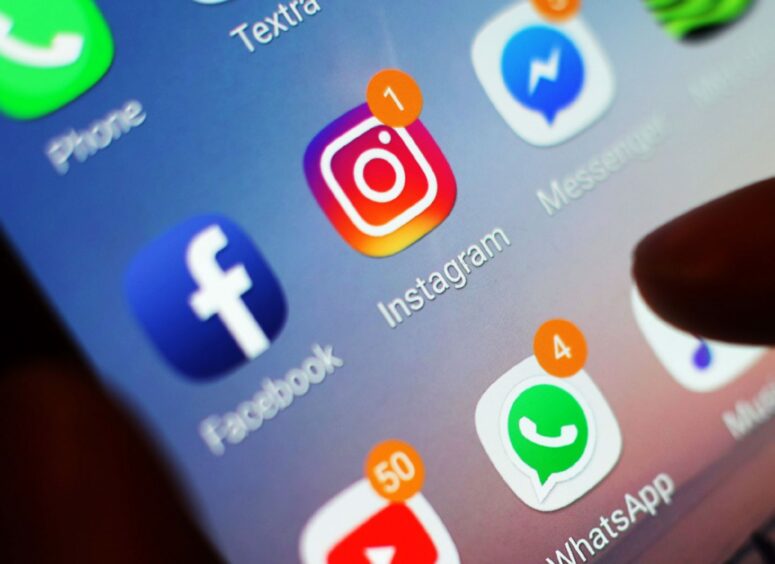A smartphone is seen as a must-have device by more and more children.
Almost half of eight to 11-year-olds now own one. But at what age should kids get a mobile phone?
My wife and I relented when our oldest son turned 10. Unfortunately for him, rather than the latest iPhone, he received a Nokia along the lines of those I owned as a teenager.
There are many things which scare me as a 21st century parent. But none more so than the internet, and particularly social media.
I figure the longer I can keep my kids away from it, the better for them in the long run.
What age should kids get a phone?
Am I overreacting? I spoke to Dr Gemma Stevens, a psychology lecturer at Robert Gordon University (RGU) in Aberdeen, to find out.
“The bottom line is that it comes down to the maturity of the child,” said Dr Stevens.
“Are they able to reflect on screen time, put the phone down during dinner time and so on?
“Children of a certain age are unable to self-regulate, and need their parents’ guidance.”
So what are the risks of children using smartphones?
“Smartphones can pose lots of risks, particularly in relation to cognitive functioning, sleep habits, addictive behaviours and so on.”
Almost half of eight- to 11-year-olds now have a smartphone
Data from Ofcom tell us that 49% of eight to 11-year-olds now have smartphones, and that’s increasing.
Smartphone use became widespread in 2011. Since then, the number of children aged 11 and older owning a smartphone has increased exponentially.
Dr Stevens says that this coincided with increased mental health problems among young people.
“Smartphone use and mental health problems seemed to rise together, so there does seem to be a correlation there,” she said.
“We know that excessive smartphone use is associated with numerous psychiatric disorders, cognitive impairments, and emotional troubles.
“Things like social comparison can be an issue, particularly with girls.
“You’ve got people using filters to improve their appearance. You’ve got celebrities where all the pictures are edited or photoshopped. And that gives an unrealistic notion of what one should look like. That sort of thing has a real impact on self-esteem.”
Guilt, unhappiness and FOMO
Dr Stevens explained the concept of ‘upward social comparison’. This is when people compare themselves negatively to someone they perceive to be superior. Young people are particularly vulnerable to this.
“You compare your own beauty, income, job, hobbies, success and so on to other people. That leads to feelings of guilt, dissatisfaction, unhappiness with your sense of self.”
Dr Stevens also mentioned the very real sense of FOMO – fear of missing out – kids feel if they don’t have smartphones and the right apps.
Parents also have worries over how to keep track of what kids are up to online.
Dealing with peer pressure
She added: “Parents are under massive pressure from their kids saying ‘everyone else has got a phone’. There is that peer pressure to keep up.
“But there are a number of things parents can do.
“I would discourage people from simply saying to their kids ‘you’re not getting an iPhone’.
“Reason with them, if you’re able to. Set parameters and ground rules. Have an agreement before any smartphone is purchased, like a social contract.
“Sit down with them and think ‘how are we going to use this?’ Talk about the particular apps they might want to download.
“Parents can feel out of depth because of their kids’ level of digital knowledge, and that’s inevitable. But there are things you can do.
“There are lots of packages you can get which put restrictions and parental locks in place.
“Another big one is setting it up so that they can’t automatically download apps, they need the parent’s password.”
Peer pressure is something I have felt. I see my son’s friends with their smartphones, and my boy with his internet-less Nokia. Should I give in or continue to hold out until he is older?
Delaying kids’ smartphone use is ‘powerful’ tactic
Online child safety expert Annabel Turner told me that rather than simply putting off the inevitable, such delaying tactics can be more effective than parents might think.
Former barrister Ms Turner, of Aberdeen, founded CyberSafe Scotland in 2018. She is also the co-chair of the Online Safety, Child Sexual Exploitation and Child Trafficking Sub Committee of the Aberdeen Child Protection Committee.
“Delaying is good,” said Ms Turner.
“Delay is really powerful when you think about child development.
“Every six months your child gains a massive amount of maturity, psychologically speaking, to be able to deal with stuff.
“Every six months you buy is significant in terms of child development, we mustn’t forget that.
“If you look at the number of jobs available in Aberdeen at the moment for social media managers, it’s such a big part of the jobs they’re going to be going into.
“We want them to be ready at 18 to do that.
“They also need to have a clean social media presence themselves, where they haven’t been making mistakes on social media, because that has a massive impact on employability.
“So allowing your child to mature before they enter that space is vital.”
Positives of smartphone use
While there are undoubted negatives involved in children using smartphones, it’s not completely one sided.
Dr Stevens listed a number of benefits, including being contactable in an emergency, keeping in social contact with friends, and improving their digital literacy in a world which requires an increasing amount of it.
“We do know from recently published research that those who have been using smartphones during the pandemic have experienced better social connections and better mental wellbeing.”
So what age is appropriate for kids to have a phone?
So, to the big question: when is appropriate for a child to own a smartphone?
“Certainly no younger than 11,” said Dr Stevens.
“I say that as a psychologist and a parent. They don’t have the maturity levels to self-regulate. Their brains are still developing. And because they can’t regulate their emotional needs, that’s on us as parents to help them.
“You can learn a lot from a smartphone, but as far as individual ownership is concerned, I’d say no younger than 11.
“11 to 12 is probably the age when you might want to think about it, but you want to make sure you’ve got that parental engagement with parameters and ground rules.
“Unfortunately, technology is moving so fast and increasing social pressures are pushing down that acceptable age limit.
“It’s a complex one.”
What is your Real Life Parenting Dilemma? Send your question (we’d especially love a video of you asking it) to schoolsandfamily@pressandjournal.co.uk and we’ll try to find the answer.






Conversation